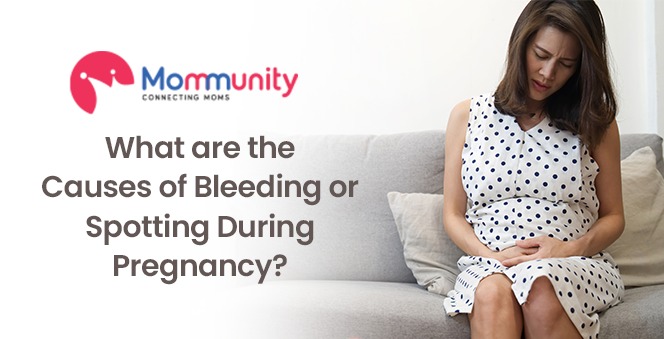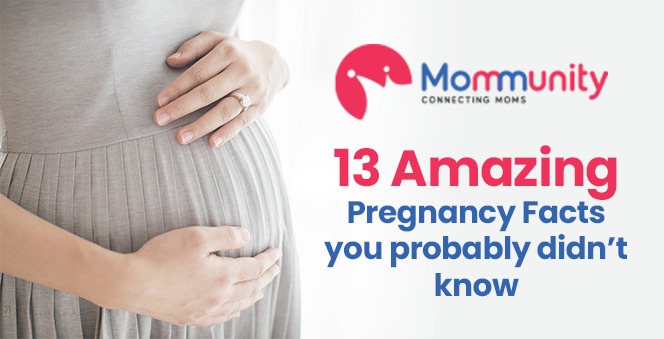Pregnancy is a wonderful experience. You’ve given birth to life, and you’ll hold your lovely bundle of joy in your arms in a few months. However, it isn’t always so pleasant. While many expectant mothers have a glowing pregnancy glow and a big smile on their faces, your experience may be less than idyllic — especially if you’re spending most of your time at the toilet because you can’t stop vomiting.
Isn’t this meant to be the best moment of your life? Maybe deep down, it is. However, sickness and vomiting can make even the most enthusiastic soon-to-be parent struggle to find happiness.
Understanding the underlying cause of vomiting can help you manage the condition, so keep reading to discover why women vomit during pregnancy and the most common causes.
MORNING SICKNESS
Even though it’s known as morning sickness, nausea and vomiting can strike at any time of day or night. Morning sickness has no established cause; however, it is most likely caused by hormonal shifts that cause havoc in your body. Morning sickness is thought to affect up to 80% of all pregnancies with nausea and vomiting beginning around week six. The good news is that symptoms usually lessen during the second trimester, though some women experience morning sickness throughout their pregnancy. Some women don’t even realise they’re pregnant until the first wave of morning sickness comes. They confirm or rule out a pregnancy by taking a test after a few days of waking up sick to their stomach.
HYPEREMESIS GRAVIDARUM
Morning sickness isn’t the only issue to be concerned about during pregnancy, nor is it the primary cause of vomiting during this “joyous” period. During pregnancy, some women experience severe morning sickness, known as hyperemesis gravidarum.
You may just vomit once a day and be able to control nausea and vomiting if you have morning sickness. You may vomit more than three or four times a day and experience near-constant nausea if you develop hyperemesis gravidarum. Hyperemesis gravidarum can cause such severe vomiting that some pregnant women lose weight and risk dehydration due to their inability to consume food and beverages properly.
This illness can also cause dizziness and lightheadedness as if puking all day wasn’t horrible enough. Symptoms of hyperemesis gravidarum tend to peak between weeks 9 and 13 and subsequently improve. As you progress through the pregnancy, your symptoms may improve.
FOODBORNE ILLNESSES
Some pregnant women are surprised to learn that this is a common cause of vomiting during pregnancy. While it’s easy to blame nausea and vomiting on morning sickness, the problem could be caused by contaminated food consumed during pregnancy. Foodborne illness can affect anyone, but pregnant women are especially vulnerable since their immune systems are weakened during pregnancy. As a result, your body has tougher time-fighting infections and germs.
Symptoms include nausea and vomiting, which are similar to morning sickness. Foodborne infections, unlike morning sickness, can produce other symptoms like headaches, body aches, and even a fever. These symptoms appear soon after consuming contaminated food, possibly within 24 to 48 hours. Fully cooked meats are the greatest approach to protect yourself. Also, keep items refrigerated as soon as possible after cooking, wash all fruits and vegetables, and avoid raw juice, eggs, or milk.
VOMITING DURING PREGNANCY: CAUSES AND RISK FACTORS
While hormones are most likely to blame for morning sickness and hyperemesis gravidarum, several factors raise the chances of experiencing one or both of these issues during pregnancy. Consider the following scenario:
- You’re anticipating more than one baby (twins, triplets, or more)
- You have a personal or family history of vomiting during pregnancy
- You have a strong aversion to certain scents or tastes
- You’ve had migraines before
- You’ve previously experienced motion sickness
- Eating raw, undercooked foods or fruits and vegetables that haven’t been washed poses the greatest risk of foodborne illness.
While those mentioned above are prevalent causes of vomiting during pregnancy, other difficulties may arise and lead to vomiting. Here are a few examples:
- Preeclampsia
- Gallstones
- Ulcers
- Appendicitis
- Migraine
DIFFICULTIES OR SIDE EFFECTS OF VOMITING DURING PREGNANCY
Morning sickness is unpleasant during pregnancy, but you are unlikely to have serious consequences. Severe vomiting might cause dehydration or reduced urination if you have hyperemesis gravidarum. If you can’t restore your fluid level, you may need to be admitted to the hospital and given intravenous (IV) fluids. This issue can also cause liver damage, B-vitamin deficiency, and poor development weight in your growing child, so it’s crucial to talk to a doctor about your alternatives.
Foodborne infections are also not to be taken lightly. Premature birth and even miscarriage can result from these infections, which include salmonella poisoning and listeria. It’s also worth noting that different types of vomiting can result in different problems. Morning sickness may not cause dehydration, but hyperemesis gravidarum or a foodborne disease can, depending on the severity of the vomiting.
TREATMENT FOR VOMITING DURING PREGNANCY
Vomiting during pregnancy is treated differently depending on the underlying reason and severity. When it comes to morning sickness, eating healthy snacks like crackers or dry toast throughout the day can help to reduce nausea and vomiting. Morning sickness can be worse for some women when they are hungry. Aromatherapy, Acupuncture, and Acupressure are some of the alternative therapies that can help.
OTHER METHODS OF SYMPTOM RELIEF INCLUDE:
- Drinking water or ginger ale
- Taking prenatal vitamins
- Avoiding triggers, such as particular foods and scents
- Taking anti-nausea and anti-vomiting drugs (if advised by a doctor)
CONSULT YOUR DOCTOR BEFORE TAKING ANY MEDICATION.
The severity of hyperemesis gravidarum can be reduced with the same medications. However, because this illness causes more severe vomiting, you may need to be sent to the hospital to receive nutrition and fluids through an IV. Your doctor may also prescribe anti-nausea and anti-vomiting medication. You could require a steroid treatment if these meds don’t work.
Many foodborne illnesses require time to heal, but you should be feeling better in a few days. The basic goal is to rehydrate and avoid dehydration. You can feel better and avoid dehydration by eating small meals, drinking Ginger ale, and drinking water or sports drinks. However, you should still consult your physician. If you suffer a bacterial foodborne infection, you may need antibiotics.
WHEN TO CALL A DOCTOR
Morning sickness that isn’t severe doesn’t require seeing a doctor. To deal with symptoms, home remedies may be sufficient. If you’re vomiting several times a day, or if you’re experiencing additional symptoms like dizziness, a racing heart, or inability to keep drinks down, you should see a doctor. While vomiting is unpleasant during pregnancy, it is also common and normally causes little concern. It happens in many pregnancies and does not indicate that you or your baby are having problems. However, if you have any concerns or require reassurance, please contact your doctor.




